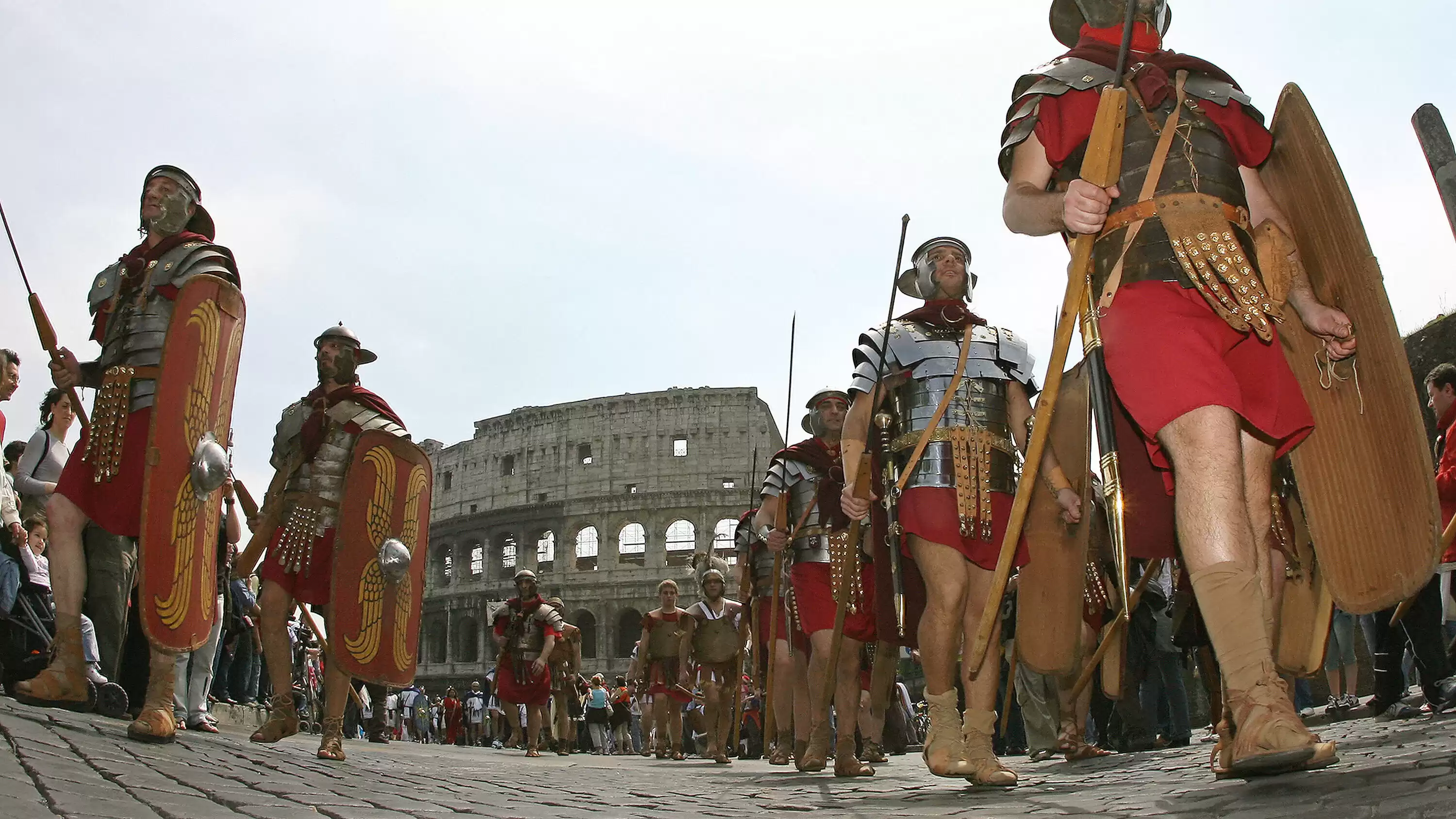"Men's Fascination With the Roman Empire: Opinion Divide Persists"
Men's obsession with ancient Rome has gone viral on TikTok, with women posting the responses they receive from men about how often they think about the ancient empire. The trend has sparked skepticism and curiosity about why men are drawn to ancient Rome. Some suggest that the patriarchal nature of Roman society and its influence on various aspects of modern life may be factors. Others argue that it may be related to gender roles and norms. The trend has gained significant attention on social media platforms.
The fascination with ancient Rome among men has recently become a topic of discussion on social media platforms. Women have been asking the men in their lives how often they think about ancient Rome, and the responses have been surprisingly frequent. The Roman Empire, which began in 27 B.C. and fell in A.D. 476, has now gone viral on TikTok in A.D. 2023.
Posts shared on social media reveal that men think about ancient Rome constantly, with some stating that they think about it every day. This trend has sparked skepticism and curiosity about why men are so drawn to the ancient empire. Many people are eager to uncover the reasons behind this apparent obsession.
Kevin Feeney, a faculty fellow at New York University who teaches Roman history, has expressed his weariness at being asked about this topic repeatedly. He points out that ancient Roman society was highly patriarchal, dominated by alpha males like Julius Caesar and Augustus. However, he emphasizes that this is not the complete story of Rome or its scholars. Roman society has had a profound influence on various aspects of modern life, including government, language, and architecture.
The enthusiasm displayed by men for ancient Rome has surprised many women. The trend gained momentum when Kelsey Lewis Vincent of Wilson, N.C., stumbled upon an Instagram Reel suggesting that men think about the Roman Empire more often than women realize. She asked her husband, Remy, about his thoughts on ancient Rome, and his response that he thinks about it every day went viral.
When asked to elaborate on what thinking about ancient Rome entails, Remy Vincent explained that it often occurs during his daily routine. For example, while driving on the highway, he might be reminded of something the Romans created, leading him to ponder what daily life was like during that time.
There is some variation in men's interest in ancient Rome, as observed by Delara Alviri, an entertainment lawyer in Los Angeles. While five of her male friends were genuinely interested in the subject, the other five were relatively indifferent, with one only associating ancient Rome with ordering pizza from Little Caesars.
The fascination with ancient Rome among men has been compared to other online phenomena that declare certain experiences to be gendered. This trend may be a reflection of the ongoing questioning of gender roles and norms in society.
Judith Hallett, an emeritus professor of classics at the University of Maryland, highlights that ancient Rome was a place with diverse definitions of masculinity. Many men continue to engage with Roman history through mass media, such as films like "Gladiator" and TV shows like "Spartacus," which often appeal to male audiences by focusing on battles and warfare.
Some argue that ancient Rome is intriguing to Americans because they see parallels between the decline of the Roman Empire and the current state of the United States. However, this kind of status anxiety is not unique to the United States or the 21st century. The New York Times has published articles comparing the decline of the United States to that of Rome on multiple occasions.
Despite the interest in ancient Rome, it is not the sole topic of conversation among men. While it may come up in discussions about hypothetical gladiatorial fights or comparisons between fictional characters, it is not a constant topic of discussion.
In conclusion, the recent fascination with ancient Rome among men has sparked curiosity and skepticism. The reasons behind this interest vary, with influences ranging from the patriarchal nature of ancient Roman society to the portrayal of Roman history in popular culture. The parallels drawn between the decline of ancient Rome and the current state of the United States also contribute to the intrigue. However, it is important to note that not all men are equally interested in ancient Rome, and it is not the sole focus of their conversations.











Comments on "Men's Fascination With the Roman Empire: Opinion Divide Persists"